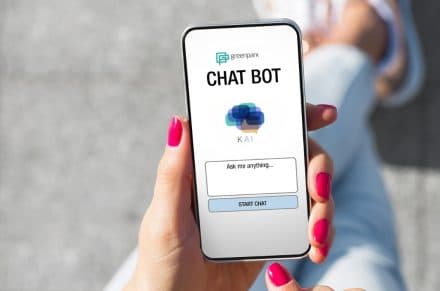The fields of Digital PR, link building, and SEO are undergoing significant transformations, driven by the rapid advancements in Artificial Intelligence (AI). Recently, Google began implementing AI-driven updates to its search engine in the US, signaling a pivotal shift in the way Digital PR strategies must evolve. These AI integrations are set to redefine the landscape, necessitating innovative approaches and a deeper understanding of the new dynamics at play.
Understanding Google’s AI
The tech giant has integrated AI into many of its services, particularly its search engine, to enhance user experience and deliver more accurate results. Let’s break down some key aspects of Google’s AI.
1. Enhanced Understanding of User Intent
Google’s AI now has a deeper understanding of user queries, thanks to advancements in Natural Language Processing (NLP) models like BERT (Bidirectional Encoder Representations from Transformers) and MUM (Multitask Unified Model). These models enable the search engine to grasp the context and nuances of search queries, providing more accurate and relevant results.
2. Personalised Search Results
The AI-driven updates allow Google to offer highly personalised search results. By analysing a user’s search history, behaviour, and preferences, the search engine can tailor results to individual users. This means that Digital PR strategies must focus on creating content that can appeal to various segments of the audience and ensure it aligns with the personalised experiences that users now expect.
3. Real-Time Data Processing
Google’s AI updates enable real-time data processing, allowing the search engine to deliver up-to-the-minute information. This is crucial for time-sensitive content such as news, events, or trends. Digital PR strategies must now prioritise the timeliness and relevance of a story, ensuring it is updated regularly to stay competitive in real-time search results.
4. Visual and Multimodal Search
AI-driven updates have enhanced Google’s ability to understand and process visual content. This includes image and video searches, as well as the integration of text and visuals in search results. Digital PR strategies must now include visual content optimisation, ensuring that images and videos are properly tagged, described, and relevant to the target audience.
5. Improved Content Quality Assessment
Google’s AI can better assess the quality of content, taking into account factors such as originality, depth, and authoritativeness. This means that low-quality or superficial content is less likely to rank well. Digital PR professionals need to prioritise creating high-quality, in-depth landing pages that provides real value to users.
6. E-E-A-T (Experience, Expertise, Authoritativeness, Trustworthiness)
AI advancements have improved Google’s ability to evaluate the E-A-T of content creators and websites. This framework emphasises the importance of expertise, authoritativeness, and trustworthiness in content. Digital PR strategies must focus on building credibility through authoritative sources, expert authors, and transparent practices.
“AI for creativity is out, AI to help strategise is in.”
Artificial Intelligence (AI) is transforming many industries, and Digital PR is no exception. However, the role of AI in Digital PR is evolving, shifting from creativity to strategic support. Jennifer Grey, Greenpark’s Digital PR lead, highlights the opportunities and challenges AI brings to the field.
AI for Creativity vs. Strategy
“AI has created opportunities for Digital PRs and link-builders, but also created a few challenges. Journalists are increasingly resistant to AI-generated releases or content, so I’d avoid using AI for creativity – ChatGPT is developing its own tone of voice, so it’s easy to spot!”
Testing Pitches and Creating Media Lists
“Where AI can be helpful is in terms of testing pitches and creating media lists. Requesting a list of publications which cover certain specific topics from ChatGPT or Gemini can throw up new contacts, and you can use tools such as PRophet.ai to easily test what the reception to a pitch or topic area is likely to be before you go to market.”
Impact on Impressions and Backlinks
“SGE (Search Generative Experience) could impact the number of impressions of third-party content, leading to less eyeballs on coverage. However, high quality and relevancy backlinks remain an important part of the Google ranking factors, so prioritising backlink acquisition from top tier industry publications remains a key factor of competitive SEO strategies in 2024.”
Artificial Intelligence (AI) has been revolutionising various industries, and digital PR is no exception. The integration of AI in search engines, such as the recent updates by Google, marks a significant shift in how digital PR professionals will need to operate to stay relevant and effective.
If your brand or company is ready to step up its game in the ever-evolving world of digital PR, contact us today. Let our expertise and innovative strategies help you achieve unparalleled success. Reach out now to start the journey towards a stronger, more impactful presence in your industry.
—
This article has been featured in PRmoment.com.








